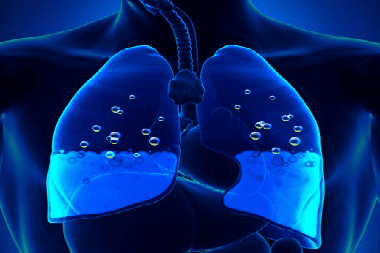Emergencies >>>> Pulmonary edema - causes, signs and first aid
Pulmonary edema - causes, signs and first aid.

Pulmonary edema is a life-threatening condition when intercellular fluid begins to accumulate in the lung tissue, filling the alveoli, which are designed to concentrate air masses. Where does the fluid in the lungs come from? Intercellular fluid is an effusion (discharge through the walls of small plasma vessels) from the bloodstream.
Pulmonary edema is not an independent disease, but a serious condition that manifests itself as a complication of the course of any disease. The most common causes of pulmonary edema are diseases of the heart and blood vessels (heart attacks, cardiosclerosis, vascular wall defects, embolism and thrombosis of veins and arteries, arterial hypertension); diseases associated with allergic reactions; blockage of the respiratory tract with a foreign object; kidney and liver diseases; intoxication (medicinal and infectious), lung injury.
Signs of pulmonary edema:
- feeling of lack of oxygen,
- pressing chest pain,
- increased breathing and heart rate,
- wheezing when breathing,
- cold sweat on the skin,
- with complication of the condition: frothy sputum, blue lips, an attack of suffocation.
First aid for pulmonary edema:
- Call an ambulance, as pulmonary edema is a deadly condition that develops very quickly;
- Free the chest from constricting things, clothing accessories;
- Create access to fresh air;
- Give a diuretic to drink (which is at hand);
- Before the arrival of an ambulance, the victim should dissolve nitroglycerin under the control of blood pressure (avoid a strong drop in pressure);
- To extinguish foam from the mouth, allow the victim to breathe alcohol vapor.

Read

Read



























